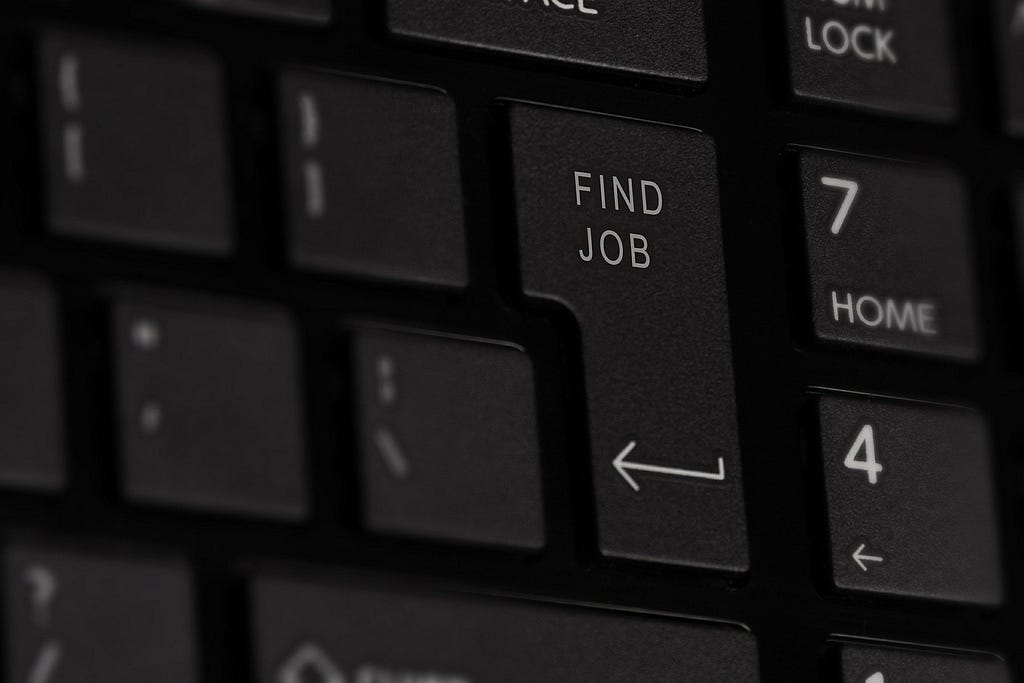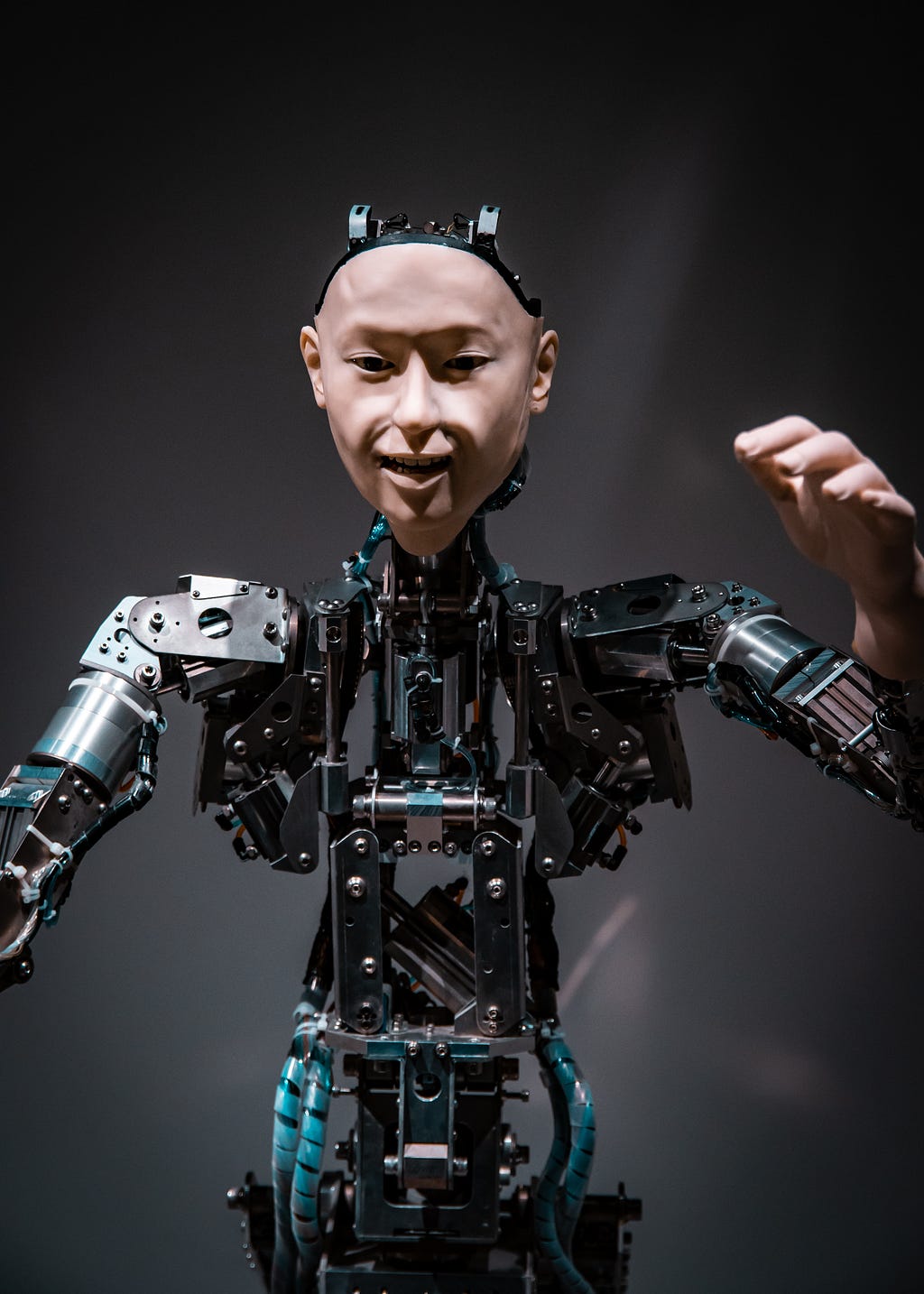
4 Ways Artificial Intelligence is Transforming Global HR Strategic Capabilities
Last Updated on February 15, 2021 by Editorial Team
Author(s): Jason Gatchalian
Artificial Intelligence, Innovation
Although the arrival of artificial intelligence (AI) in HR has been recent, they have rapidly transformed HR functions by combining AI and machine learning capabilities with their extensive collection of employee data and pool of potential candidates resulting in increased efficiency.

According to Mercer, 88% of companies around the world have already adopted some form of artificial intelligence (AI) in their organization.
83% of U.S. companies and 100% of Chinese organizations are already reliant on some level of AI technology.
However, the application of AI in HR is still in its infancy and nowhere near matches its progress within sales and marketing.
Current AI-based technology has enabled HR practitioners to focus more on productive work by automating repetitive and time-consuming tasks such as large-scale candidate screening.
This not only saves time and money but also addresses important HR functions such as improving candidate engagement and experience via chatbots and training their workforce.
HR is slowly becoming another department of global strategic importance and potential for developing a competitive advantage.
1. Cross-Cultural Training and Effectiveness
Cultural differences are a major challenge for expatriates and employees involved in cross-border communication. It is a major factor in why international relocations and deployments fail.
In fact, 40% of global assignments fail and result in the expatriate returning home with their goal incomplete.
Cultural adjustment to new social norms and language barriers is a stressful process that requires significant financial support. In the UK, the average cost of relocation per person is £90,000 which considers costs relating to flight, accommodation, salary, training, healthcare and family assistance.
Hence, global HR departments must have cross-culturally effective expatriates on global assignments as failure leads to great financial loss.
Language and cultural skills are believed to be critical in cross-cultural effectiveness according to 9 out of 10 global recruiters. They enable expatriates to communicate effectively and minimize cultural misunderstandings that may be perceived as disrespectful. Yet, workers are hired without consideration of these skills.
Alelo is a world-leading company that specializes in AI avatar-based training and education.
In partnership with the U.S. Department of Defense, they developed training courses with an AI-based, virtual trainer that teaches cultural awareness and sensitivity skills to U.S. military personnel for international deployment.
The course incorporates a virtual role-playing simulation between a socially intelligent AI avatar and the personnel within a culturally relevant context. It provides an opportunity to practice interacting within a cultural environment, apply decision-making in context and receive immediate feedback for further improvement.
The course made U.S. personnel accustomed to the cultural norms in the country they will be assigned to and learn how to conduct themselves accordingly. It also enabled them to build trust and cooperate with the locals including their armed forces. The project was made mandatory for U.S. military personnel to be deployed in 86 countries with each course developed for a particular country.
Using these courses have enabled organizations to become more cost-efficient as it lowered training costs while improving employee effectiveness.

2. Global Recruitment and Talent Acquisition
For global HR, AI-based solutions were developed to target and improve the efficiency and speed of the recruitment process.
L’Oreal Group, a global cosmetic company with 82,600 employees, annually screens 2 million candidates online of which 5,000 are hired. The team responsible for screening these applications consist of 145 recruiters across 150 countries.
In partnership with Seedlink Technology, they implemented a chatbot named Mya. Chatbots allow organizations to passively screen and source talent at low cost with minimal effort. They act as virtual assistants by conducting a variety of administrative tasks such as screening candidate resumes and collect vital information including candidate knowledge and experience.
Under machine learning and AI, Mya can:
- Converse seamlessly with candidates.
- Ask open-ended questions regarding candidate suitability.
- Answer questions relating to the company and job.
The questions have a metric designed to provide a ranking of each candidate’s performance and feedback is delivered to the recruiter.
Mya’s machine learning algorithm enables her to learn from the recruiter’s decisions and her understanding of candidate suitability gets more refined the more input she receives from recruiters.
The result is a hiring process 10 times faster, a 25% increase in retention rate and interviewed 25% more applicants. It is also more inclusive in that it does not consider information that could lead to bias such as the educational background.

3. Robot Managers
Although AI was initially met with resistance due to fears of potential job loss and cybersecurity risks. Organizations who have adopted AI technology have increasingly begun to welcome AI with enthusiasm.
A global 2019 study of 8,370 HR employees and leaders from 10 countries have shown that the relationship between people and technology have changed.
To the extent that 64% of employees trust robots more than their managers with 32% preferring to look to robots for advice instead of their manager. Also, 82% of employees believe robots are more capable than their manager in terms of providing:
- Non-biased information.
- Organized schedules.
- Solving problems.
- Budget management.
However, the reported limitations of AI-based technology include:
- Inability to comprehend employee feelings.
- Provide mentorship.
- Create an organizational culture.
Recent research has shown that increased investment in robotics resulted in the decline of managerial and supervisory positions, due to the diminishing need for managerial overseeing of worker activities to monitor production quality.
Managers no longer need to ensure employees arrive to work on time or are working as robots are now able to track and record every employee’s daily performance.
Contrary to popular belief, the intention to utilize robots is not to reduce labor costs but improve product or service quality. Human labor is prone to errors, which create a variance in quality of service or product meaning high quality is not always maintained during production across all products or services.
The most surprising finding is the disruption that AI robots have on the organizational hierarchy. Implementation of AI robots increased low- and high-skilled jobs but decrease middle-skilled jobs.
This creates a huge gap in organizations, where there are little opportunities for financial support to educate and train low-skilled employees, significant enough to bridge the gap to become high-skilled. Otherwise, low-skilled employees will remain working at entry-level with little opportunity
Researchers suggest organizations planning to adopt AI robots must have a retraining plan for middle-skilled workers.
Organizations must examine where human capital adds the most value and is most effective. For example, middle-skilled workers can be responsible for managing robots such as repairing and training.

4. Mental Health and Wellbeing at Work
Another major challenge for global HR is managing stress and anxiety at work.
A study of 12,000 staff consisting of employees and HR directors across 11 countries suggest that 68% place greater preference in talking to robots about work-related stress and anxiety.
The respondents believed that the automation of repetitive tasks not only reduced workload but also decreased burnout and stress by enabling them to focus on more important goals.
It also resulted in higher productivity and satisfaction due to reduced working week and longer holidays.
Interestingly, 77% of employees want more technological support for their mental health and 80% are open to having robots as workplace therapists.
The study also reported that working from home, as a result of the pandemic, has blurred the lines between home and work life, with 60% of ages 22 to 25-year-olds taking on the heaviest of burdens working five more hours overtime per week.
Unsurprisingly, 94% of this age range felt that stress at work caused deteriorating health outcomes such as sleep deprivations which negatively affected their relationships at home.
AI can be utilised in various ways to support the mental health and wellbeing of a global workforce.
However, mental health is not currently prioritized as a significant issue by organizations and not highly discussed within HR at an executive level. Therefore, discussions of mental health and wellbeing must first be tackled domestically before it can be addressed internationally.

Key Takeaways
As organizations embrace the competitive advantage and strategic importance that AI brings to HR within their domestic territory, we start to see this transcend across multiple countries. We see the use of:
- AI avatars in cross-cultural training.
- Machine learning in global recruitment and talent acquisition.
- Robots in replacing managerial capability.
- Robots in improving mental health and wellbeing.
The uses of AI in global HR functions are currently limited but expanding rapidly. Utilizing innovative AI-based solutions; HR in the future will be another battleground for building strategic value and competitive advantage.
4 Ways Artificial Intelligence is Transforming Global HR Strategic Capabilities was originally published in Towards AI on Medium, where people are continuing the conversation by highlighting and responding to this story.
Published via Towards AI
Take our 90+ lesson From Beginner to Advanced LLM Developer Certification: From choosing a project to deploying a working product this is the most comprehensive and practical LLM course out there!
Towards AI has published Building LLMs for Production—our 470+ page guide to mastering LLMs with practical projects and expert insights!

Discover Your Dream AI Career at Towards AI Jobs
Towards AI has built a jobs board tailored specifically to Machine Learning and Data Science Jobs and Skills. Our software searches for live AI jobs each hour, labels and categorises them and makes them easily searchable. Explore over 40,000 live jobs today with Towards AI Jobs!
Note: Content contains the views of the contributing authors and not Towards AI.













